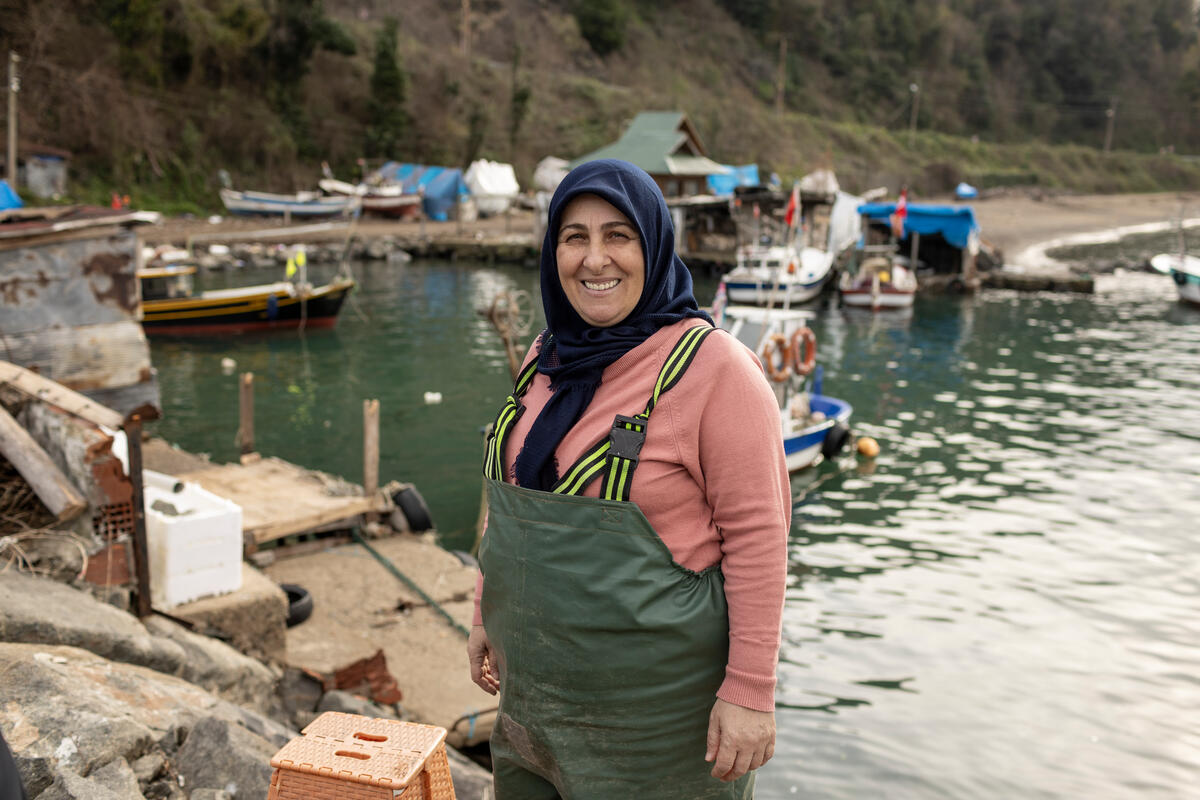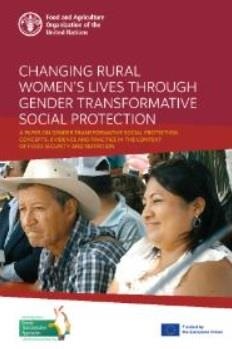FAO reaffirms commitment to gender equality on International Women's Day 2025
Priorities include the adoption of gender transformative approaches.

Increased participation of rural women in Türkiye’s fisheries sector is boosting their empowerment and resilience.
©FAO/ Bradley Secker
Rome – On International Women´s Day 2025, the Food and Agriculture Organization of the United Nations (FAO) highlighted its strong commitment to the empowerment of women and girls, particularly in the context of the fight against hunger.
In connection with the day, FAO launched the first progress report of the Commit to Grow Equality (CGE) initiative at the 69th Session of the Commission on the Status of Women (CSW69) in New York. A key goal of the CGE is to enhance women’s empowerment and resilience by expanding access to social protection, such as nutrition programmes and school meals.
Gender-responsive social protection matters
Despite advancements, women still face structural inequalities. Discrimination, limited access to resources, markets, and services, and the burden of unpaid care work deepen their poverty and food insecurity.
Around the globe, only 26.5 percent of working-age women are legally covered by social protection systems, compared to 34.3 percent of men.
These challenges are particularly acute for rural women, who often experience high informality in agriculture and related sectors, and have fewer opportunities to participate in the workforce.
Social protection can help women access the labour market and invest in income-generating activities, both on and off the farm.
For example, Peru’s national conditional cash transfer programme, Juntos, has reduced women’s financial dependence on their spouses, giving them greater decision-making power, especially on household and maternal health spending.
Social protection also helps women withstand economic and climate shocks, enabling households to meet their basic needs.
“Climate change disproportionately impacts women farmers in low- and middle-income countries,” says Nkatha Ntoburi, including in many parts of Africa, FAO Social Policy Officer. “Social protection has the potential to be a game-changer in building inclusive agrifood systems,” she added.
Social protection is particularly important for vulnerable groups, who are often unable to access traditional risk management mechanisms, such as credit or insurance services.
In Senegal, after severe floods in 2020, the government’s social safety net programme transferred USD 300 to the mobile accounts of over 10 000 recipients -primarily women- enabling them to recover and avoid maladaptive coping strategies.
While progress has been made in integrating gender into social protection programming, more needs to be done. A gender-transformative approach can improve poverty reduction, food security, and nutrition. This requires tackling discriminatory social norms, power imbalances, and inequalities.
As FAO continues to work on initiatives like the CGE, it calls for greater collaboration to build social protection systems that truly leave no one behind.
Webinar
Gender transformative social protection for rural women
Opinion article
Gender-responsive and social protection can empower women and girls to build climate resilience
News
International Year of the Women Farmer in 2026
FAO, IFAD and WFP join forces to celebrate International Women's Day 2025
30 years after Beijing, Commit to Grow Equality urges action for women in agrifood systems

